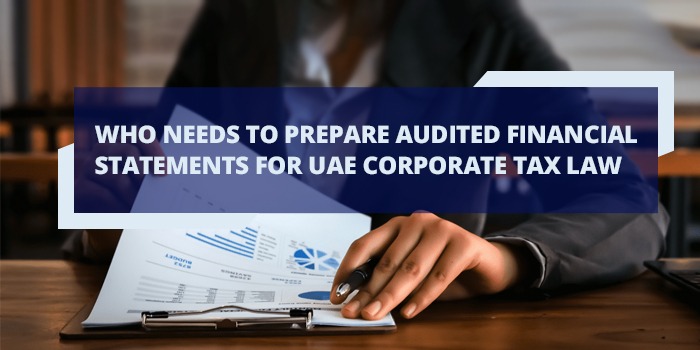The United Arab Emirates (UAE) has a well-established taxation system that aims to create a stable and sustainable economy while ensuring social development. As part of this system, the Minister of State for Financial Affairs has issued Ministerial Decision No. 82 of 2023, which outlines the categories of taxable persons required to prepare and maintain audited financial statements for the purposes of Federal Decree-Law No. 47 of 2022 on the taxation of corporations and businesses.
The Decision has been formulated based on the authority given to the Minister of State for Financial Affairs by the Constitution, Federal Law No. 1 of 1972 on the Competencies of Ministries and Powers of the Ministers, and its amendments, Federal Decree-Law No. 13 of 2016 on the Establishment of the Federal Tax Authority, and its amendments, Federal Decree-Law No. 28 of 2022 on Tax Procedures, and Federal Decree-Law No. 47 of 2022 on the Taxation of Corporations and Businesses.
Article (1) of the Decision provides definitions for words and expressions used in the document. These definitions are in line with the meanings specified in the Federal Decree-Law No. 47 of 2022 referred to as the “UAE Corporate Tax Law“. It is essential to understand these definitions to interpret the Decision correctly.
Article (2) of the Decision outlines the categories of taxable persons that are required to prepare and maintain audited financial statements. These categories are:
- A Taxable Person deriving Revenue exceeding AED 50,000,000 during the relevant Tax Period.
- A Qualifying Free Zone Person.
The first category includes any taxable person who earns revenue exceeding AED 50,000,000 during the relevant tax period. The relevant tax period is the year preceding the year in which the tax return is due. This category is important as it targets large taxpayers who have a significant impact on the economy.
The second category includes Qualifying Free Zone Persons. A Qualifying Free Zone Person is a taxable person who conducts business within a designated free zone area and meets certain conditions, as specified in the UAE Corporate Tax Law. The purpose of this category is to promote economic growth and encourage investment in designated free zone areas.
The Decision specifies that these categories of taxable persons shall prepare and maintain audited financial statements for the purposes of Clause 2 of Article 54 of the UAE Corporate Tax Law.
Article 56 states that taxable persons shall maintain accounting records and supporting documents for at least 7 years and prepare financial statements that comply with internationally accepted accounting standards.
In conclusion, Ministerial Decision No. 82 of 2023 is a significant step towards promoting a stable and sustainable economy in the UAE. The Decision aims to ensure that taxable persons comply with internationally accepted accounting standards, maintain proper accounting records, and prepare audited financial statements. By doing so, the UAE government can monitor the financial activities of taxable persons and ensure that they contribute to the development of the economy.
To know more details about the latest updates get in touch with us:

